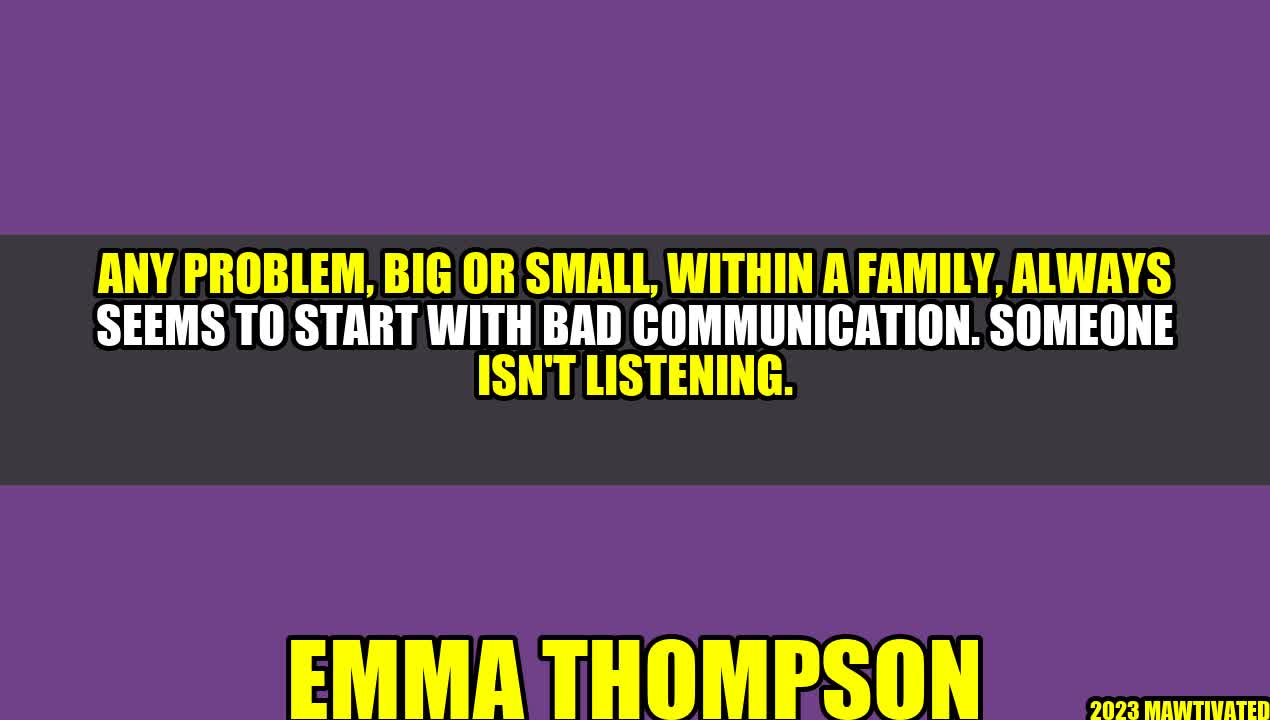SPEAKING THE SAME LANGUAGE: The Importance of Good Communication in Families

Introduction
Emma Thompson once said, “Any problem, big or small, within a family, always seems to start with bad communication. Someone isn’t listening.” This quote accurately depicts how lack of good communication often leads to misunderstandings, arguments, and unresolved issues within a family. It is common for many families to feel that there is a lack of understanding, trust, and emotional connection due to poor communication, which is why it is essential to address this problem and improve communication within families.
Story of Inspiration
Mark and Sarah had been married for ten years when they started having communication issues. They had stopped listening to each other and started arguing over minor issues. The problem grew so big that they couldn’t bear being in each other’s company anymore. It was then a friend suggested they take help from a family therapist. The therapist taught them how to communicate better, listen to each other, and express their emotions without anger. A few months later, Mark and Sarah found themselves falling in love all over again, and their relationship stronger than ever before.
“Poor communication can mar a family’s harmony, but effective communication can heal wounds and bring families closer.”
Why is Communication Important in Families?
- Improved Understanding: Good communication fosters a better understanding of each other’s needs, opinions, and perspectives.
- Better Conflict Resolution: When family members communicate well, they can resolve conflicts quickly before they escalate to bigger issues.
- Healthy Relationships: Good communication eliminates misunderstandings and builds stronger connections within families.
- Improved Mental Health: Families that communicate effectively have lower levels of stress and anxiety.
These are just a few of the many reasons why good communication is critical in families. Poor communication, on the other hand, can lead to resentment, anger, and isolation among family members, which is why it is essential to build healthy communication habits in families.
Effective Communication Strategies for Families
Here are some ways families can improve their communication habits:
- Active Listening: Listening actively involves paying attention to what the other person is saying without interrupting or getting defensive.
- Expressing Emotions: Encouraging family members to express their emotions without fear of judgement or criticism creates a safe and supportive environment.
- Respect and Empathy: Showing respect and empathy towards each other’s opinions fosters better understanding and healthy dialogue.
- Family Meetings: Scheduling regular family meetings where everyone can express their concerns, thoughts, and ideas promotes healthy communication.
- Setting Boundaries: Setting boundaries that are respectful and fair helps make family members feel heard and respected.
- Seeking Professional Help: If communication issues are severe and continuous, seeking help from a family therapist can be beneficial.
Conclusion
Good communication is essential for building strong and healthy relationships within families. It fosters better understanding, promotes conflict resolution, and keeps feelings of resentment and isolation at bay. Effective communication strategies such as active listening, expressing emotions, and setting boundaries can help families stay connected and positive. While it may take time and effort to build good communication habits within families, the rewards of a peaceful and happy family life are priceless.
Takeaway Points:
- Good communication eliminates misunderstandings and promotes healthier relationships within families.
- Effective communication strategies include active listening, expressing emotions, and setting boundaries.
- If communication issues persist, seeking help from a family therapist can be the best course of action.

Curated by Team Akash.Mittal.Blog
Share on Twitter
Share on LinkedIn